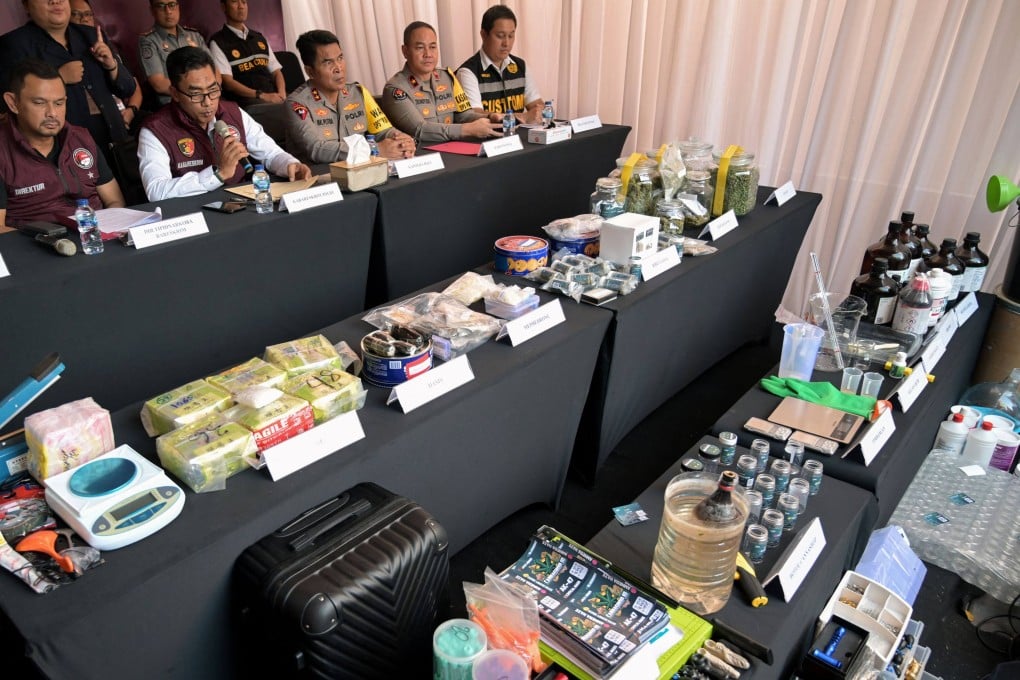Bali police busted a drug lab run by Russians, Ukrainians. Should Indonesia execute tourists who commit serious drug crimes?
- Some Indonesians have voiced support for the drug traffickers to be executed. As of October last year, Indonesia had 509 death row inmates
- Police believe the group, comprising foreigners and an Indonesian, pocketed around four billion rupiah (US$249,171) within six months of operating out of the Canggu villa

Two Ukrainians, a Russian, and an Indonesian were arrested earlier this month for running the clandestine drug lab that police said produced hydroponic marijuana, mephedrone, and cocaine out of a villa in the hip tourist area of Canggu in southern Bali.
The Ukrainian suspects, twins Ivan and Mikhayla Volovod, had obtained investor visas in September by posing as property agents. They were believed to be responsible for manufacturing the drugs while the Russian suspect, Konstantin Krutz, was in charge of marketing, Indonesian police said on May 13.

“For drug transactions, they used the Telegram application. That [site address] was plastered everywhere, a layman would see it, and they wouldn’t know, it turns out it’s a code for people to buy [drugs],” Wahyu Widada, head of the national police criminal investigation agency, said.